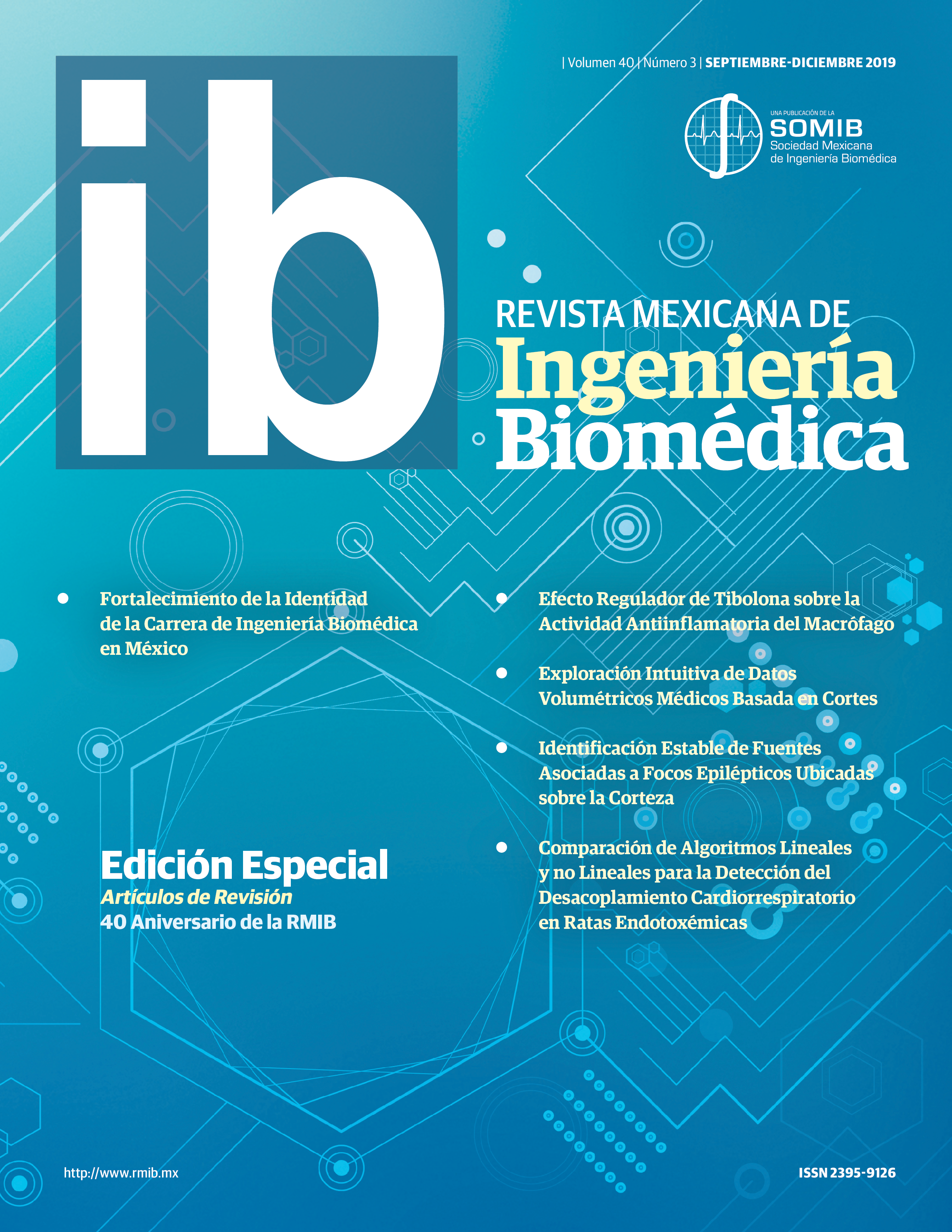Use of Functionalized Biomaterials with Bioactive molecules in Biomedical Engineering
DOI:
https://doi.org/10.17488/RMIB.40.3.9Keywords:
biomaterials, functionalization, bioactive molecules, metabolitesAbstract
The paper exposes the importance of the use of bioactive molecules for the functionalization of biomaterials. For this reason, a review of current and relevant research was carried out in various data searchers, including the di-fferent types of bioactive materials and molecules used to elaborate functionalized biomaterials, with emphasis on the processes and their properties. It was found that the process of functionalization or modification of the surface expands the path to adapt the biomaterial according to the physiological environment of living cells. This process improves the structure and functions of the designed tissues and organs. There are a variety of methods and bioac-tive molecules available for the functionalization of biomaterials, depending on the way in which the cells or tissues are regenerated. Among the different materials for the manufacture of biomaterials, biomolecules such as proteins, lipids, carbohydrates, among others, are one of the most used options due to the similarity of these with the bio-logical systems of the human body. Finally, the paper also integrates some of the most promising applications of bioactive molecules incorporated into biomaterials.
Downloads
Downloads
Published
How to Cite
Issue
Section
License

This work is licensed under a Creative Commons Attribution-NonCommercial 4.0 International License.
Upon acceptance of an article in the RMIB, corresponding authors will be asked to fulfill and sign the copyright and the journal publishing agreement, which will allow the RMIB authorization to publish this document in any media without limitations and without any cost. Authors may reuse parts of the paper in other documents and reproduce part or all of it for their personal use as long as a bibliographic reference is made to the RMIB. However written permission of the Publisher is required for resale or distribution outside the corresponding author institution and for all other derivative works, including compilations and translations.








